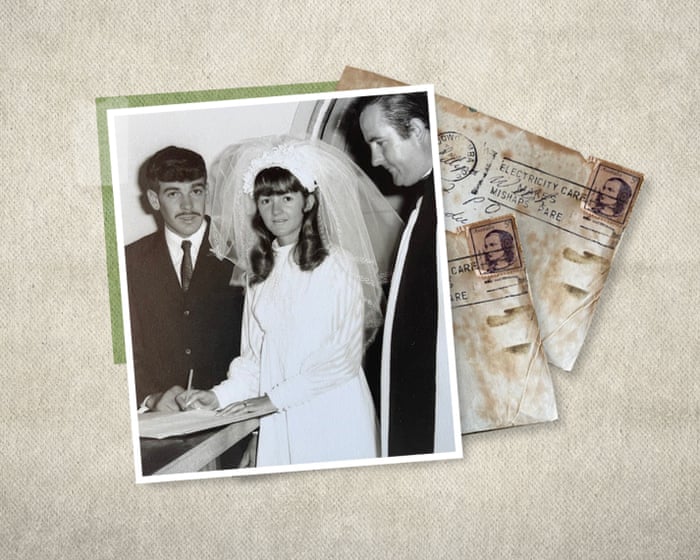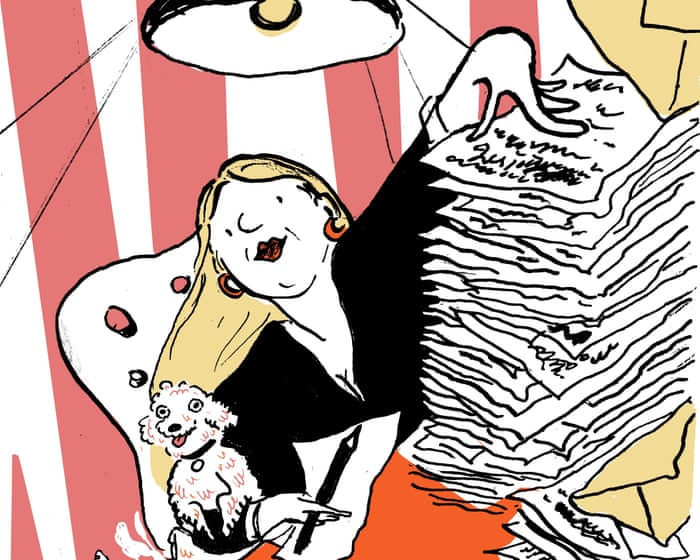Donald Trump is suing the New York Times for reporting on him. Instead of alleging a specific instance of libel, his lawsuit reads more like an angry rant. In it, he calls the Times “one of the worst and most degenerate newspapers in the history of our country” and accuses it of being a “mouthpiece for the Radical Left Democrat Party,” among other complaints.
At least his lawsuit against the Wall Street Journal’s parent company was more specific: it targeted their reporting of a birthday message Trump allegedly sent to Jeffrey Epstein. Trump continues to deny sending the message, even though it appeared in documents released by a U.S. House committee.
Last year, Trump sued ABC and host George Stephanopoulos for stating that he had been found liable for rape, rather than “sexual abuse,” in the civil case brought by E. Jean Carroll. The network settled for $16 million. He also sued CBS, claiming they edited an interview with Kamala Harris on 60 Minutes to make her sound more coherent. CBS also settled for $16 million.
Filing defamation lawsuits is a long-standing tactic for Trump, a strategy he learned from Roy Cohn, one of America’s most notorious legal bullies. In the 1980s, Trump sued Chicago Tribune architecture critic Paul Gapp for $500 million after Gapp criticized Trump’s plan to build what would have been the world’s tallest building in Manhattan. Gapp called the proposal “one of the silliest things anyone could inflict on New York or any other city.” Trump claimed the criticism had “virtually torpedoed” the project and subjected him to “public ridicule and contempt.” A judge dismissed the case, ruling that Gapp’s comments were protected opinion.
Such lawsuits are far more concerning when filed by a president. As the head of the U.S. government, he is not just a private individual whose reputation can be harmed. The media has a vital role in a democracy to report on and often criticize the president.
The legal standard for defamation of a public figure was established in the 1964 Supreme Court case New York Times Co. v. Sullivan. It requires public officials to prove that a false statement was made with actual knowledge of its falsity or with reckless disregard for the truth. The case arose from a libel suit filed by Montgomery, Alabama Police Commissioner L.B. Sullivan against the New York Times over an advertisement that, while mostly accurate, contained minor factual errors about the mistreatment of civil rights demonstrators. The Supreme Court sided with the Times, ruling that the ad was protected speech under the First Amendment and that a higher standard of proof was necessary to ensure robust public debate.
Under this standard, Trump has little chance of winning his latest lawsuits against the New York Times or the Wall Street Journal. He also likely would not have prevailed in his cases against ABC and CBS had they gone to trial.
But Trump isn’t filing these lawsuits to win in court. He’s seeking victories in the court of public opinion. These legal actions are part of his performative approach to the presidency. The settlements from ABC and CBS are seen by Trump as validation of his grievances against those networks.
Similarly, his lawsuit against the New York Times serves to publicize his long-standing complaints about the paper. His case against the Wall Street Journal may be intended to send a message to its publisher, Rupert Murdoch, that Trump doesn’t want the paper delving into the Jeffrey Epstein case.
These lawsuits also serve as a warning to the media: Trump has the power to disrupt their operations. Defending against such suits is expensive, requiring significant legal fees, time from top executives, and damage control for the outlet’s reputation. When the lawsuit comes from the president—who also has the power to impose regulations or pursue legal action against a company—the stakes are even higher.The potential costs can be even greater, which likely explains why CBS chose to settle rather than fight the lawsuit in court. CBS’s parent company, Paramount, was aiming to sell the network for around $8 billion to Skydance, led by CEO David Ellison—son of Larry Ellison, the founder of Oracle and the second-wealthiest person in the U.S. However, Paramount first needed approval from the Federal Communications Commission (FCC), then under Trump’s administration, which delayed the sale until the defamation case was resolved.
This situation highlights a central danger of Trump’s aggressive use of defamation law: the threat of legal action, combined with his broader power to retaliate, can discourage media criticism of him. While it’s unclear how much criticism has been suppressed so far, it’s telling that both the president of CBS News and the executive producer of 60 Minutes resigned over the network’s handling of the lawsuit and settlement, apparently because they felt management was restricting their ability to cover Trump fairly and independently.
As part of its concessions to the Trump administration, CBS agreed to hire an “ombudsman” to monitor the network for alleged bias. The person chosen was Kenneth R. Weinstein, former head of the conservative Hudson Institute think tank. It’s also notable that CBS did not renew Stephen Colbert’s contract, even though his show was the highest-rated late-night comedy program and he was one of Trump’s most pointed critics.
Further evidence emerged when ABC temporarily pulled another popular Trump critic, Jimmy Kimmel, off the air after he commented on a recent controversial incident involving conservative figures. The FCC chair, Brendan Carr, appeared to threaten ABC and its parent company, Disney, over airing Kimmel’s monologue, warning, “We can do this the easy way or the hard way.”
Jeff Bezos, executive chair of Amazon and owner of the Washington Post, has also tightened control over the paper’s opinion section, barring it from endorsing Kamala Harris in the 2024 election and imposing strict guidelines on editorials. This led to the resignation of the opinion editor and several writers. Though Trump hasn’t sued the Post for defamation, Bezos likely recognizes the risk Trump poses to his various business interests and is taking steps to avoid provoking him.
Make no mistake: Trump’s attempts to silence media criticism represent another attack on democracy. So what can be done? Two key steps are necessary.
First, the legal standard for defamation—established in New York Times v. Sullivan—should be much stricter when a sitting president sues a media outlet for criticism. Instead of requiring proof that a false statement was made knowingly or with reckless disregard for the truth, the president should have to show that the falsehood seriously hindered his ability to perform official duties. Ideally, a president should not be allowed to bring defamation suits at all, since the office already provides ample power to address criticism—often too much.
Second, antitrust regulators should prevent large corporations or extremely wealthy individuals with diverse business interests from acquiring major news outlets. These owners cannot be trusted to prioritize the public’s right to know over their financial stakes in other ventures. Allowing the world’s richest person to buy X, one of the most influential news platforms, and transform it into a hub for misinformation is a clear example of this problem.The son of the world’s second-richest person now runs CBS. The fourth-richest person owns the Washington Post. Disney, with its vast business interests, owns ABC.
The issue isn’t just concentrated wealth itself. It’s that these media empires may matter more to their owners than the public’s right to know.
If Democrats regain control of Congress next year, they should turn these two proposals into law.
Democracy relies on a courageous press. Trump and the media outlets that have given in to him are putting that at risk, and in doing so, weakening our democracy.
Robert Reich, a former U.S. Secretary of Labor, is a professor emeritus of public policy at the University of California, Berkeley. He is a columnist for Guardian US and publishes a newsletter at robertreich.substack.com. His new book, Coming Up Short: A Memoir of My America, is now available.
Frequently Asked Questions
Of course Here is a list of FAQs about Robert Reichs statement on Trumps lawsuit against The New York Times presented in a clear and natural tone
BeginnerLevel Questions
1 What is this lawsuit that Robert Reich is talking about
Donald Trump filed a lawsuit against The New York Times and three of its reporters claiming they conspired with his niece Mary Trump to obtain his confidential tax records for a 2018 story
2 Why does Robert Reich say the lawsuit is baseless
He says its baseless because the lawsuit targets the newspaper for doing its jobreporting on information of vital public interest In the US news organizations are generally protected from being sued for publishing true information even if it was obtained by a source through questionable means
3 What is the serious danger hes referring to
The danger is that even a baseless lawsuit can be used as a weapon to intimidate and silence journalists and news organizations The high cost and stress of defending against a lawsuit can have a chilling effect making media outlets hesitant to investigate powerful figures for fear of being dragged into court
4 Isnt it illegal to publish someones private documents
Generally no not for the publisher if they are a news organization US law particularly the First Amendment strongly protects the freedom of the press to publish true and newsworthy information even if the documents were obtained without permission The legal responsibility typically falls on the source who leaked the documents not the newspaper that reports on them
5 Has anything like this happened before
Yes this is a common tactic known as a SLAPP lawsuit These are lawsuits not meant to win in court but to burden critics with legal costs and silence them through intimidation
AdvancedLevel Questions
6 What specific legal claim is Trump making and why is it so weak
He is alleging a conspiracy to insinuate themselves into the trust and confidence of Mary Trump Legal experts widely agree this is an extremely weak claim It attempts to sidestep core First Amendment protections by framing the reporters newsgathering as an illegal conspiracy
7 How does this lawsuit fit into a larger pattern of behavior
This is part of a broader pattern of attacking institutions that provide accountability including the media enemy



